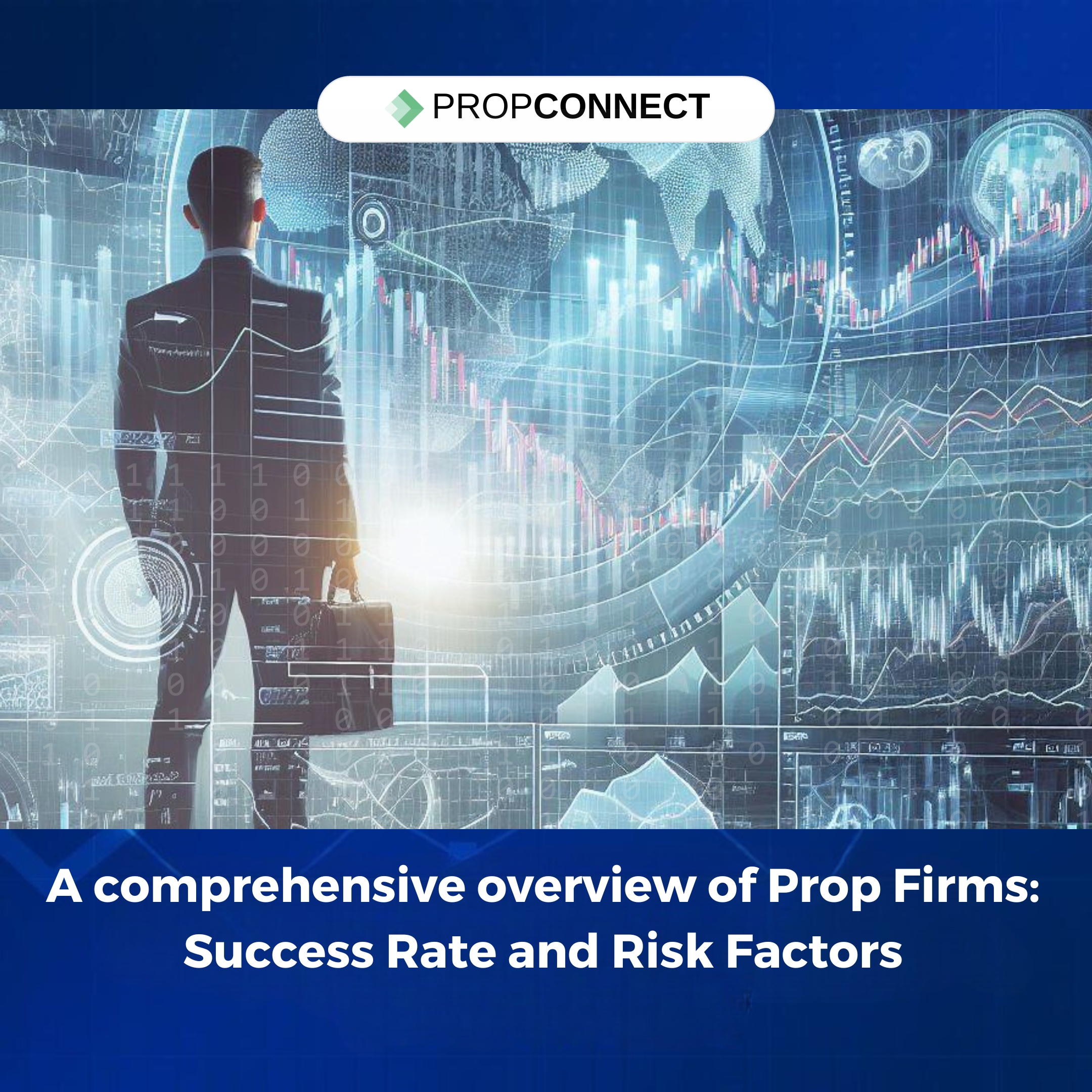Articles
A comprehensive overview of Prop Firms: Success Rate and Risk Factors
To overcome the hurdles, the prop trader should have good risk management, learning ability, mental fortitude, and flexible approaches. A realistic approach backed with effective practices will help prop traders to succeed and establish themselves in the ever-changing marketplace of proprietary trading

A comprehensive overview of Prop Firms: Success Rate and Risk Factors
Proprietary trading otherwise known as prop trading is a very appealing business opportunity for those who want to make some money using financial markets. Although it is quite enticing, the attraction of prop trading often conceals the difficulties and dangers connected with this road. In this article, we perform a reality check on prop trading. We discuss the probability of success as well as the essential risks that traders need to take into consideration.
The Prop Trading Landscape:
Prop trading involves individual or group trading of financial instruments with the firm’s capital instead of personal money. This attractiveness comes from the opportunity for great earnings because the prop trader shares part of its income. Prop-trading however, its actuality is quite complicated and requires profound comprehension.
Understanding the Success Rate:
Varied Success Rates:
The success rates for prop trading vary considerably. Some traders are consistent with their profits, while others lack considerable returns.
The success of trading invariably depends on a variety of factors including, market conditions, trading techniques, risk management, and trader’s competence.
2. Training and Education:
Traders usually receive training and education from prop firms to enable them to understand financial markets well.
Usually, traders have a higher success rate whenever they participate in continuous education and keep up with market dynamics and developments.
3. Discipline and Psychology:
Prop trading success has nothing to do with skills of a technical nature alone. Equally important are discipline and psychological resilience.
Traders need to stick to their strategies tightly, control emotions well, and flexibly change with market changes to increase their success likelihood.
Risk Factors in Prop Trading:
1. Market Risk:
Prop traders are exposed to this risk given that they trade with financial instruments in inherently volatile markets. Such losses can arise as a result of sudden changes in prices, market collapses, and unanticipated geopolitical events.
2. Leverage and Capital Risk:
Prop traders often use leverage to magnify their trades. Leverage has the effect of increasing profit margins, but when the markets shift disfavorably, it causes huge losses, particularly if this happens before realizing the returns.
Prop trading has capital risk because of its potential to bring financial losses to the trader, such as his or her capital.
3. Overtrading and Lack of Strategy:
Prop trading is also a risk associated with overtrading commonly referred to as overtrading. Frequent trading may tempt traders and increase transaction costs with associated losses.
Furthermore, when one has no concrete trading strategy, impulsive decisions can be made with no guideposts.
4. Market Structure and Liquidity Risk:
Liquidity and market structure is very important for prop traders. In illiquid markets, wider bid-ask spreads and slippage may lower trade profitability.
5. Regulatory and Compliance Risk:
However, prop traders are required to meet both regulatory and compliance requirements. The prop trader must comply with all these standards, failure to do so can cause even legal prosecution, endangering the trader’s career and the prop firm’s reputation.
Navigating the Challenges:
1. Risk Management:
Effective risk management is paramount. Prop traders should set out their risk parameters, such as position sizes, stop loss level, maximum exposures, etc.
It is possible to reduce the risks associated with trading fluctuations through diversification of the trading strategies and assets.
2. Continuous Learning:
Prop traders must constantly learn as financial markets are dynamic. To sustain success, one must keep up with any market developments and continually improve trading strategies.
3. Psychological Resilience:
Developing psychological resilience is crucial. Traders learn to take the good and the bad in equal measure; they remain disciplined and calm in difficult market times.
4. Adaptable Strategies:
Prop traders ought to develop flexible tactics capable of surviving fluctuating market conditions. Adoption of a rigid approach may not help in the face of changing market patterns.
Conclusion:
Prop trading is another form through which people can take profit from proprietary companies by exploiting their capital and other resources towards making money. On the other hand, comprehending the truth behind prop trading involves recognizing that it may lead to prosperity as well as perils. Factors, such as education, discipline and market awareness, affect the success rate.
To overcome the hurdles, the prop trader should have good risk management, learning ability, mental fortitude, and flexible approaches. A realistic approach backed with effective practices will help prop traders to succeed and establish themselves in the ever-changing marketplace of proprietary trading.

